

Recently I applied to an open call with Rotterdam based non-profit gallery A Tale of a Tub. I wasn't successful, which is fine, but the successful proposal, announced yesterday, seems at odds with the requests outlined in the open call. A Tale of a Tub asked for something to connect them more with and bridge the gap between the local community of the district they inhabit. They also asked for the project to include a majority of local artists and explore local contexts. After reading the very brief information regarding it presented online, the successful proposal does not meet those criteria, in my opinion.
This text could very easily sound like sour grapes. I’m aware of that. But, please, believe me, it’s not. It is a genuine concern that I hold regarding the integrity and point of open calls. It connects to situations of institutions saying one thing and doing another. The perimeters of the open call have now been removed from A Tale of A Tub’s website. However, from memory, there was a definite insistence in the application text that the proposal should look to find ways to integrate the institution more into the local community and focus on artists based in Rotterdam. The selected proposal,... pausing barely/barely pausing ...by Christina Li, from the brief overview presented on Tlön Project’s website, feels like a list of big hitters and established names being run out in vague connection to the context of the building that A Tale of A Tube inhabits. The proposal sets out a partnership between A Tale of A Tub and Amsterdam based gallery Tlön Project. Artists listed include unknowns like Neïl Beloufa, Louise Bourgeois, Pierre Huyghe, Susan Hiller and Ryan Gander. The exhibition text states that "The assortment of artworks and experiences in this exhibition has been selected to occupy a liminal interstice, a space that calls the all-encompassing logic of capitalist power into question. The artworks serve to unravel the ways in which technological flows and processes have transformed our lived experience into economic abstractions." 1 That sounds very nice but showing some works from private collections in a paywalled gallery doesn't feel like the most radical take on the logic of capitalism. In fact, it seems pretty in line with the logic of capitalism. Though I guess that is sustained by the liminality of this proposal; since all proposals must be liminal. Wavering on the threshold of doing or saying something but never really coming into the room. There is no obvious link to bridging the gap to the local community outside of a vague notion of making work that is inaccessible to the public access available to view by the public. So long as said public pay to see it...
Despite my pith in the previous paragraph, I have no problem with the proposal conceptually, I’m sure it will be a great show with many merits. My problem is in the incongruity between the call and the selection. Why be so specific in the open call in regards to a desire for community engagement and integration and the involvement of a majority of Rotterdam based artists and then select something which on the face of it meets non of those criteria? I can see the attraction relating to some big names being involved and the publicity that comes with that. I am wholly on board with building links with other institutions and A Tale of A Tub and Tlön as similarly scaled and positioned institutions feel a good fit. It's just that incongruity with the call that confuses and aggravates me.
This highlights so many of the issues with open calls generally. I like the utopian idea of open calls and we have one here at Ephemeral Care. They can be a great way of expanding the audience for a project and coming across hidden gems. Yes, there are criticisms that they are just a way for lazy curators to avoid doing actual research. Yes, there is a definite issue with open calls being used as a fundraising tool without actually ever intending to exhibit any of those who apply. In theory, however, I don't think they are a bad thing. Like so many utopic formations, on paper, they sound great but as soon as you put them in the hands of actual humans it often very quickly goes to shit. It often seems very easy for those putting out open calls to forget the amount of thought, effort and time that applicants put into a proposal based on a set of guidelines. The choice to select something that seemly doesn’t meet those guidelines, and offering no feedback on applications can, in the best case, leave applicants wondering why they bothered. From artistic labour and an emotional labour point of view its unethical to move the goalposts, or have misleading goalposts in the first place and expect folks to be fine with that.
An issue that I also have in regards to this specific open call is the complete lack of respect it shows to the community local to the space that they were supposedly wanting to integrate more with. I have not personally been to Rotterdam but in writing the application I took the time to research the Spangen district in which A Tale of A Tub sits. Spangen is incredibly multicultural with two different mosques representing two different elements of the Muslim community 2. Its a predominately low-income area, with high welfare dependency. Poor intervisibility between streets in Spangen leads to increased segregation in the neighbourhood 3. Intervissibility concerns the degree of interconnection and zonal diversity (commercial, industrial, residential) on the street net, or map. Dead end or single access streets with only residential buildings are less intervisible than streets with multiple access points and a mixture of houses/apartments and shops/restaurants. A Tale of A Tub sits on the periphery of the district in the Justus van Effencomplex a former bathhouse and pioneering social housing project by Michiel Brinkman. Justus van Effencomplex was tailored to the lives of its residents in 1919. It features large elevators and broad elevated walkways allowing for residents employed on the docks to bring up their trolleys to their door even if they lived on upper floors. This concept, bovenstraator sky street, proved influential on later architects paving the way for Le Corbusier’s Unite d’Habitation and Peter and Alison Smithson’s Golden Lane Estate and Robin Hood Court. Brinkman's project was aimed at social harmony and utility, featuring space for leisure, homelife and work-life to coexist realistically in the same space.
This heritage of social design and pioneering utilitarian architecture formed the basis of my proposal which sought to place Rotterdam based early/mid-career artists with socially engaged practices into a residency-exhibition format. The intention being that the artists would work with the communities around the gallery to produce works and help bring local residents needs and views into the space of A Tale of A Tub. Allied with that was the suggestion of a Spangenkaart, a card distributed to all Spangen residents allowing them free entry to A Tale of A Tube which otherwise is a paywalled space. That very basic point for me is the crux of the problem with this whole situation. The gallery is paywalled in a low income and possibly marginalised community. When the choice is between buying groceries or going to an art gallery it's no choice at all. When the gallery puts out a call that seeks to open the possibilities and relationships with local communities and then selects a proposal that looks more like a strategic business and marketing partnership than a progressive or responsive piece of community-focused programming it sends some mixed messages. It makes me wonder just exactly which local community they were referring to. Or just who they think their local communities are.
I am not fully aware of the outreach work and public programming associated with the selected proposal and maybe it is extensive in scope; rich and diverse in the communities and individuals it represents and seeks to actively speak with members of the communities in question. Maybe A Tale of A Tub has some other projects in the pipeline that cover some of those bases; though that would defeat the object of the original call somewhat. It also feels like a betrayal of those local communities to a degree. It's kind of like cultural gaslighting. Even if many in the local area had not seen that open call, the very fact that it existed and was phrased as it was, suggests a commitment to those people. To then throw that out and go in another direction feels like something that could increase the division between A Tale of A Tub and the residents of Spangen. Ultimately it feels to me as though the selection has been made on the merits of professional development. Made to integrate A Tale of A Tub further into artistic communities in the Dutch capital and on an international stage rather than the families, businesses and social formations around them. That’s fine; just be honest about it.
So, once again, this is not sour grapes and I sincerely hope that the exhibition is a success. I also hope that I am proved wrong and that the exhibition helps integrate the gallery with local communities. Time will tell and hopefully, things are well enough in the world that I will be able to visit Rotterdam in May to see for myself. All I ask is be truthful in your calls. If you say that you want an exhibition to respond to a certain set of circumstances then respect that decision in your selection and evidence it. Also, side note, offer feedback people! I know you are busy but taking five minutes to put together a brief overview of things that were good and bad about a proposal is the least that you can do for someone who is putting in a considerable amount of work to produce it in the first place. There are lessons for us all to take here, myself included, in how to think about open calls as a structure and the responsibilities to applicants and audiences that come with them.
[Attached with this is a pdf of my application for the open call for anyone who wants to look at it.]
(1) Tlön Projects. ... pausing barely/barely pausing ...https://www.tlonprojects.org/exhibitions/exhibition-with-works-from-the-imaginary-collection (accessed: 2021-02-19)
(2) Aghabeek, Lili & van Nes, Akkelies. 2015. Ethnic groups and spatial behaviour in Rotterdam’s neighbourhoods.pp.11-12.
(3)ibid.
ESSAY
Joe Rowley - FEB 2021
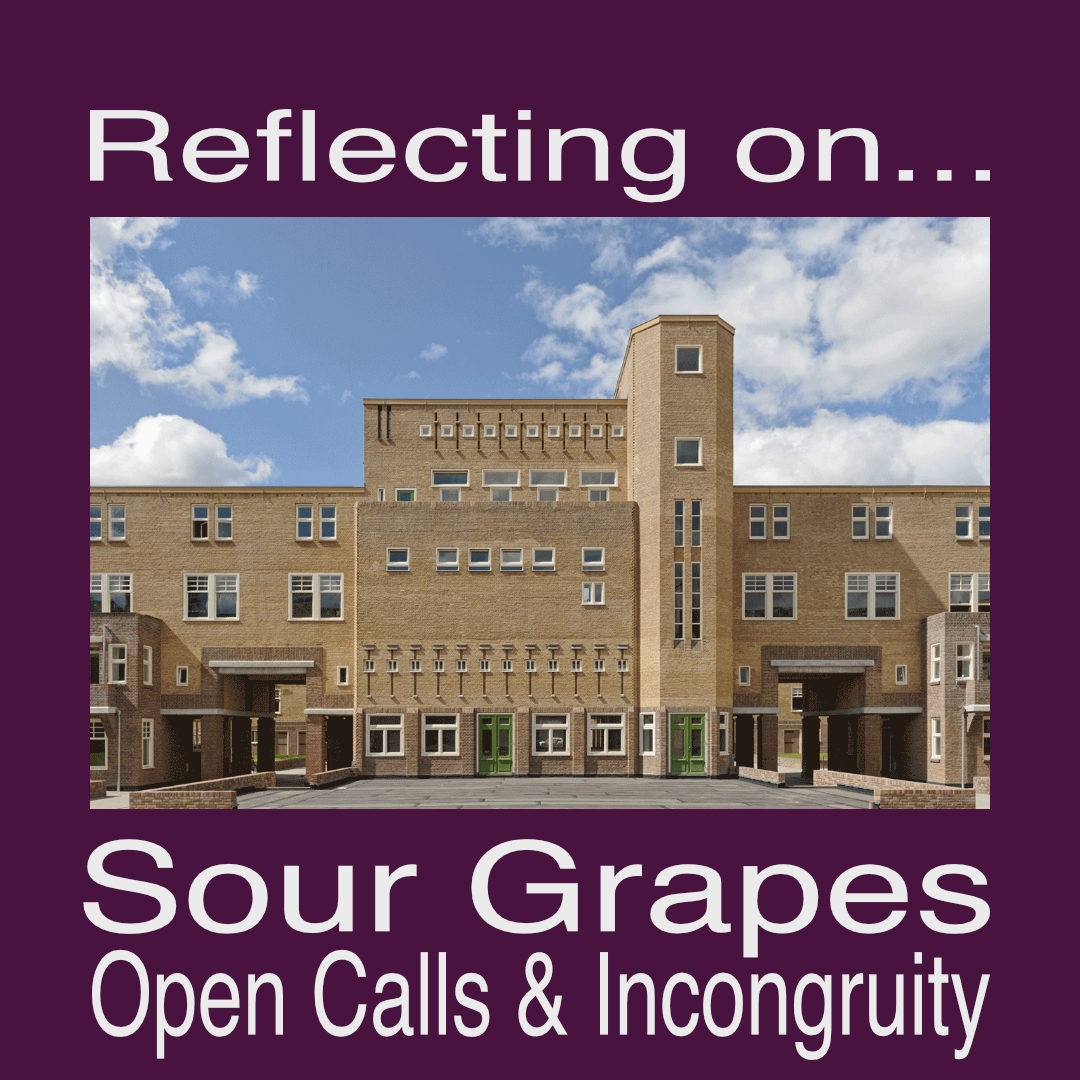
The Reflecting on... series takes situations, objects, artworks, articles, texts, podcasts and anything else really as starting points for reflection on artist-led and self-organised (AL&SO) practice.
Sreen shot of A Tale of A Tub sellection anouncement on Instagram.
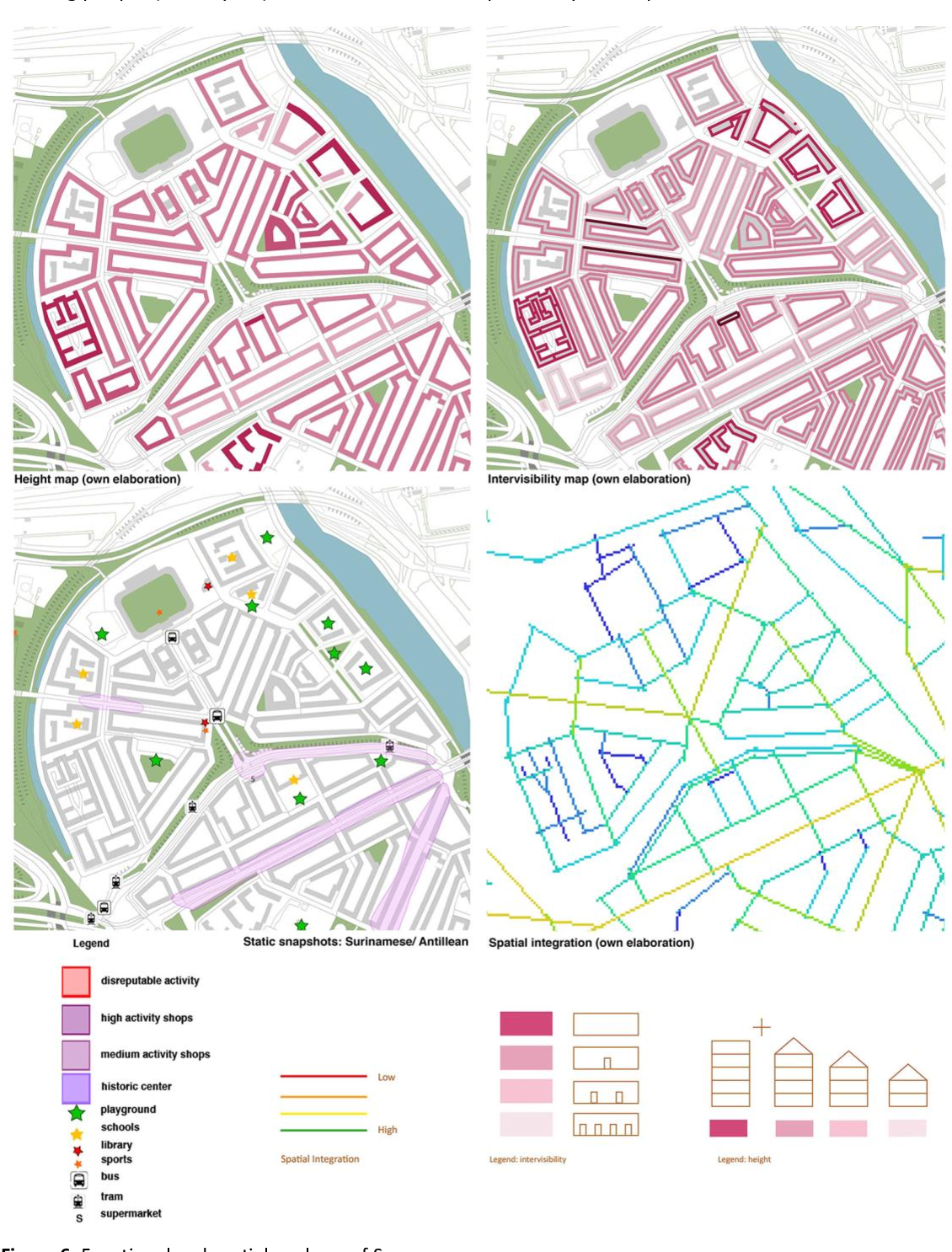
Graphic map of Spangen describing intervisibility.(credit: Aghabeek & van Nes)
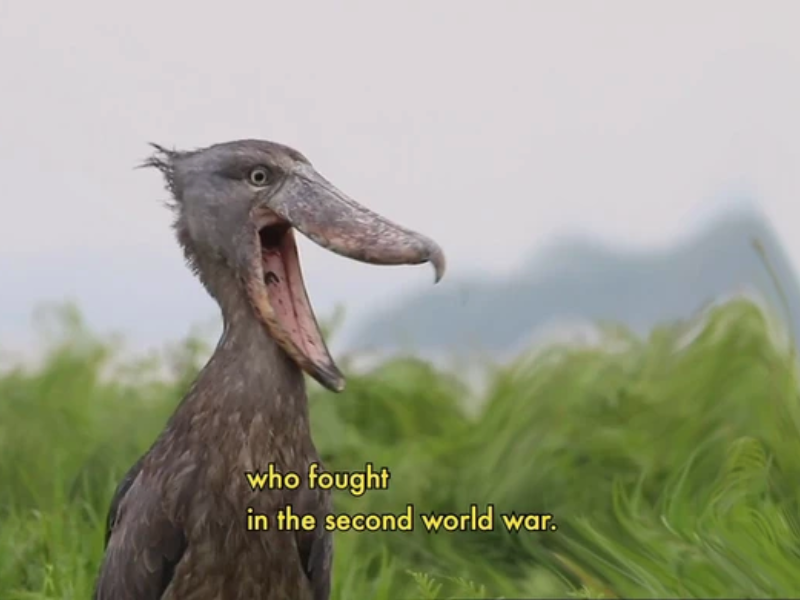
CHRISTINE AYO - Ikoce Volume I (2020) (credit: Christine Ayo)
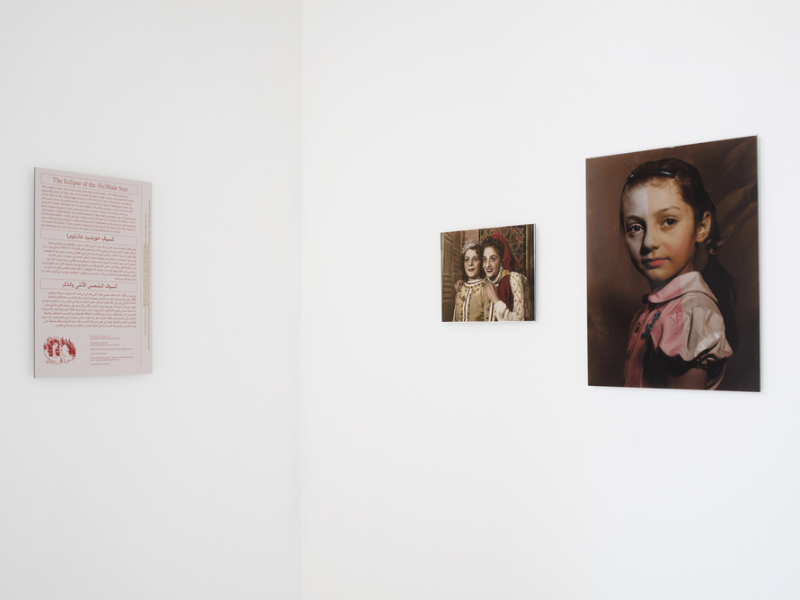
AFRANG NORDLÖF MALEKIAN - Eclipse of the (Fe)Male Sun (2020) (credit: Afrang Nordlöf Malekian)
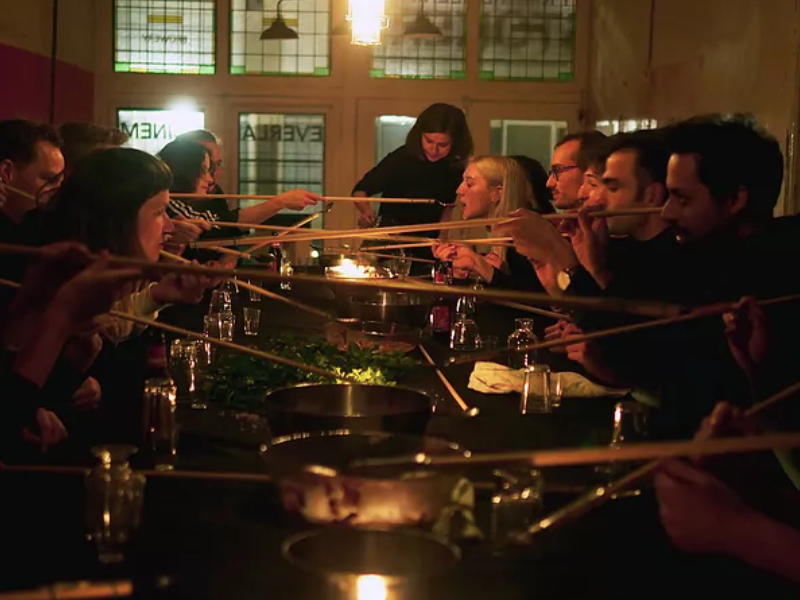
KLODIANA MILLONA & & YUAN CHUN LIU - The Parable of the Long Spoon(s) (2019) (credit: Millona & Liu)
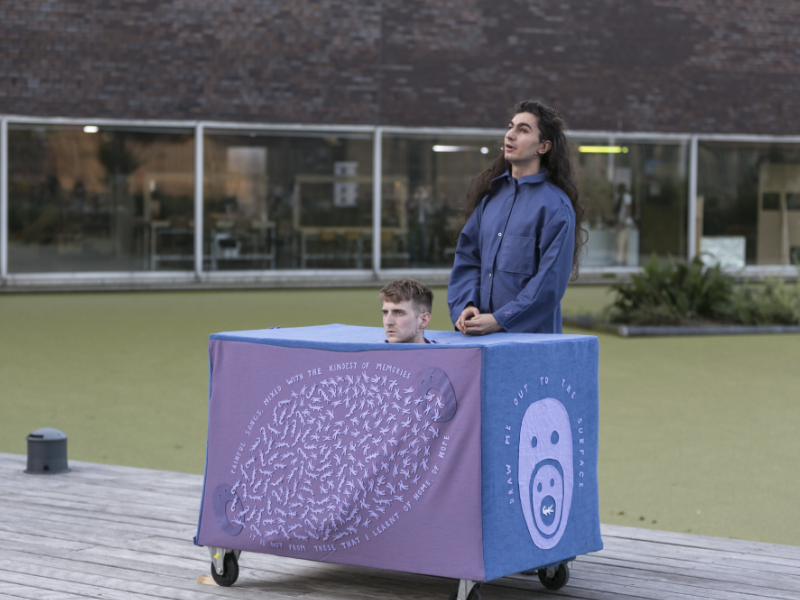
BOBBY SAYERS - The Homeless Troudabour (2019) (credit: Bobby Sayers)
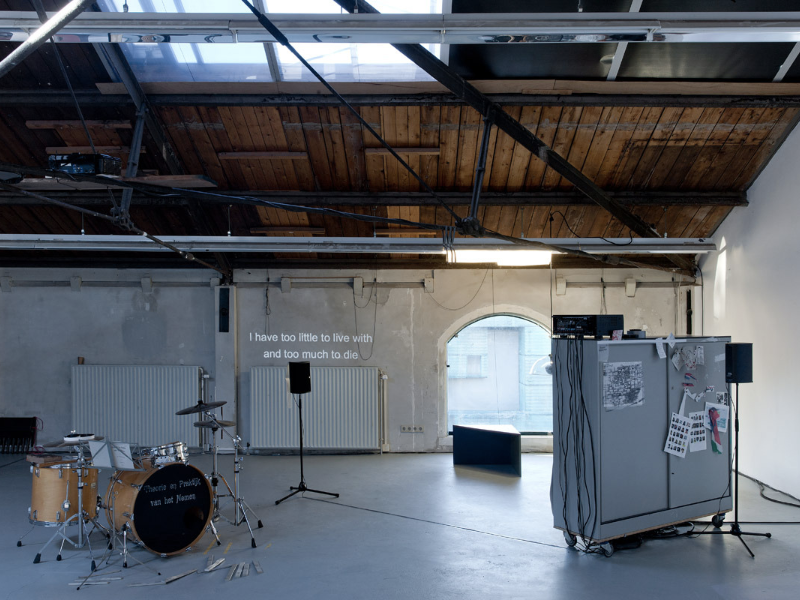
BERT SCHOLTEN - Lied van ingeslikte woorden ( 2019) (credit: G. J. Van Rooij)
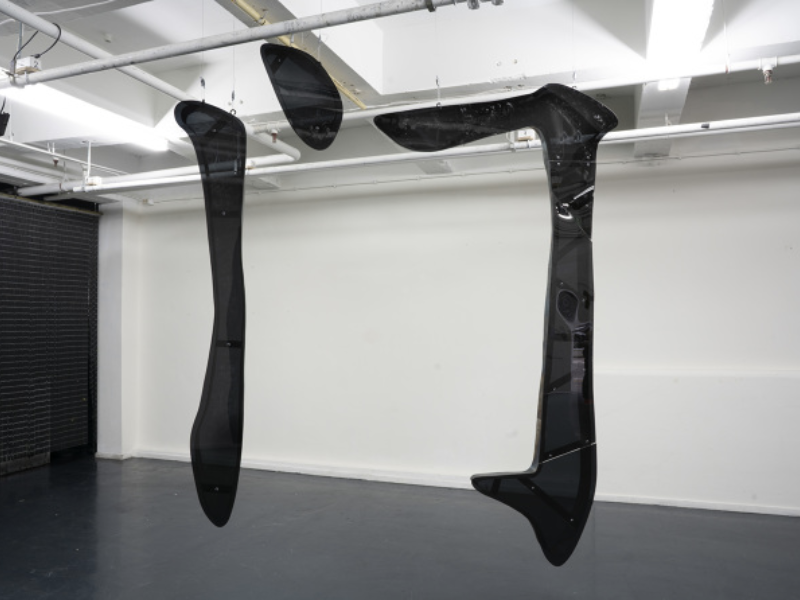
ANASTASIA SHIN - When is a Door not a Door? (2019) (credit: Matheline Marmy)
Ephemeral Care focuses on ethics, practice and strategies in artist-led and self-organised projects.